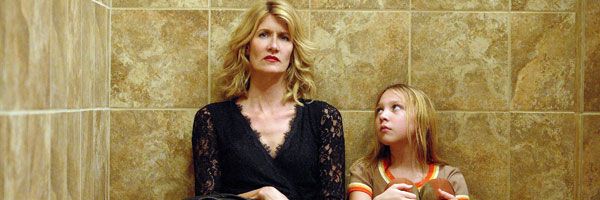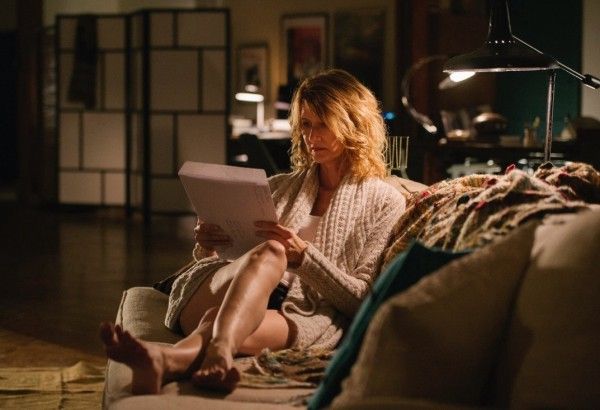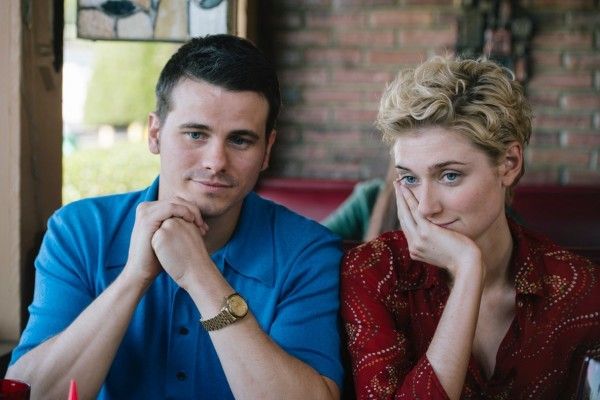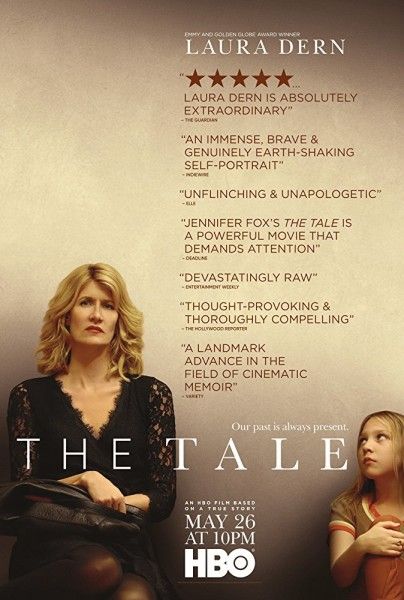[This is a repost of my review from the 2018 Sundance Film Festival. The Tale premieres tomorrow night on HBO.]
The Tale is one of the bravest and smartest movies I’ve ever seen. Writer-director Jennifer Fox dives into the sexual abuse she suffered as a teenager, and proceeds to interrogate her own memories with unflinching clarity. Furthermore, rather than simply stick to her background as a documentary filmmaker and try to tell her story in that medium, she wisely decides to make a narrative feature that gives her the tools to more effectively dive into both the abuse she suffered and the investigation to find the truth behind her own memories. With an outstanding cast, led by the incomparable Laura Dern, at her disposal, Fox weaves a captivating and gut-wrenching story about the lies told to us, and the lies we tell ourselves.
Documentarian and professor Jennifer (Dern) comes home from working on a project to get a frantic series of voicemails from her mother Nettie (Ellen Burstyn). While cleaning out some boxes, Nettie discovered a story Jennifer wrote when she was thirteen recounting a romantic relationship she had with her running coach Bill (Jason Ritter) and riding instructor Mrs. G (Elizabeth Debicki). Although Jennifer acknowledges she had a relationship with an older man, it isn’t until she starts reading her own story closer that she starts to discover her own flawed assumptions, thinking she was more mature when pictures show a small, plain 13-year-old Jenny (Isabelle Nélisse). Rattled by how her memories may have betrayed her, Jennifer starts an investigation to uncover the truth behind her original story.
The narrative structure goes far beyond the present day with older Jennifer and flashbacks to the 70s with Jenny. Fox picks apart the flashbacks, slowly peeling away at her assumptions and using information from other characters to clarify reality. Obviously, the big truth behind everything is that she was sexually abused, but Fox takes her time to show how she was finally able to come to grips with that conclusion. It’s about establishing her closeness to Mrs. G, how Bill was so charming, and that because these two adults chose to treat a shy, awkward teen like an adult, they must have been her friends. Jennifer then starts to realize they groomed her and then assaulted her.
Smaller revelations give way to larger truths. When Jennifer discovers she wasn’t a confident, self-assured teen, Fox “recasts” the role of Jenny. Moments that she considered romantic, like snow slowly falling around her home when Bill came to pick her up, are redone as Nettie says that the meeting with Bill happened in autumn, so it couldn’t have been snowing. Slowly but surely, we see that the story Jennifer wrote when she was thirteen wasn’t merely an embellishment, but a way to cope with the abuse even though that abuse has haunted her for the past 35 years in ways she refused to acknowledge.
In the age of #MeToo, The Tale shows how every story of sexual abuse is unique even if the predators always prey on more than one victim. Fox is fearless in showing the details of her story, and I imagine that some scenes could trigger viewers with a history of abuse, whether it’s the way that Mrs. G and Bill work to lower Jenny’s defenses or the deeply disturbing sexual intercourse between Bill and Jenny. Fox presents these moments because the whole point of The Tale is about a character discovering the truth as best she can remember, and to shy away from upsetting moments would be a disservice to herself and to other victims of sexual abuse.
Thankfully, she has an outstanding cast to tell the story. Dern, as always, is phenomenal, constantly weaving between Jennifer’s journalistic instincts and slowly unraveling at the truth she’s uncovering. Nélisse is a revelation, shouldering a performance well beyond her years as she juggles Jenny’s vulnerability and insecurities. Ritter has never been better or more despicable by showing Bill’s charm and manipulation. Debicki is marvelous, showing how Mrs. G is both a predator and a pitiable victim in her own way. Even cast members who aren’t center stage provide phenomenal work. Burstyn has a maternal role, but she also functions like the hard-charging editor forcing her reporter to dig deeper to get the truth. Common, who plays Jennifer’s fiancé, provides a great sense of decency and mature support. There’s not a weak link in the cast, and they all contribute to making Fox’s story feel immediate and profound.
The Tale is unlike any film I’ve ever seen, and it’s the kind of story that always goes for specificity and honesty. Even though tales of sexual abuse are painfully common, Fox shows why each of these tales is so tough, horrifying, and unique. When a victim chooses to tell her story, she’s also telling it to herself, and if the victim is young when the abuse occurred, they may not even know how to reckon with the truth. As Jennifer tells her students, “Stories are how we make sense of the world.” Fox’s story leaves us shocked, saddened, disturbed, and angry. It also makes us grateful that she chose to share it with us.
Rating: A




